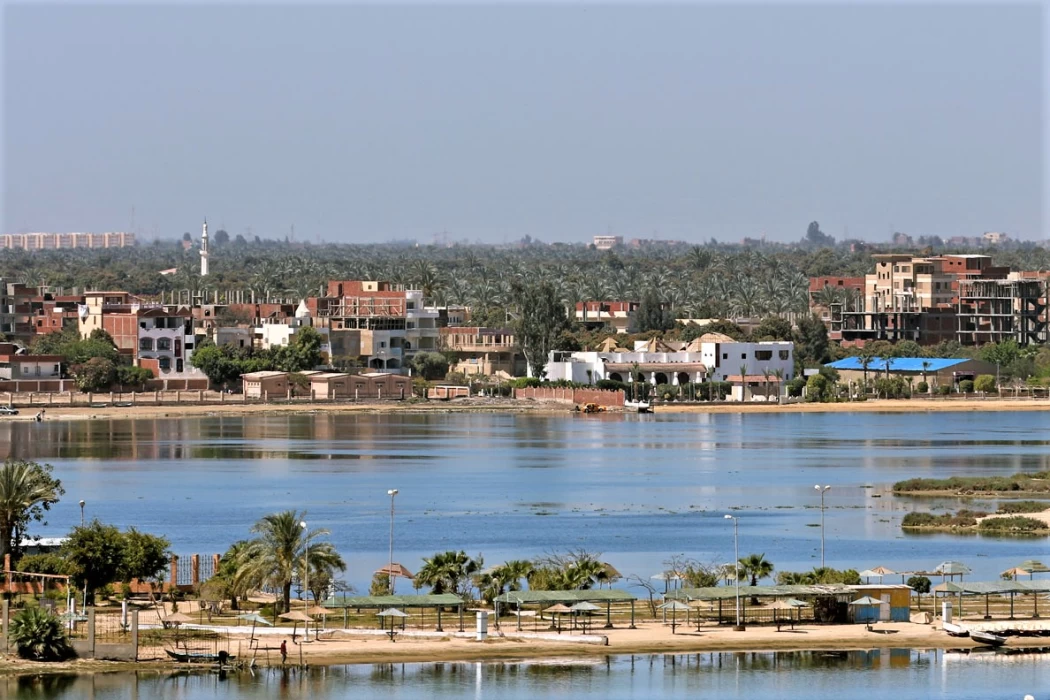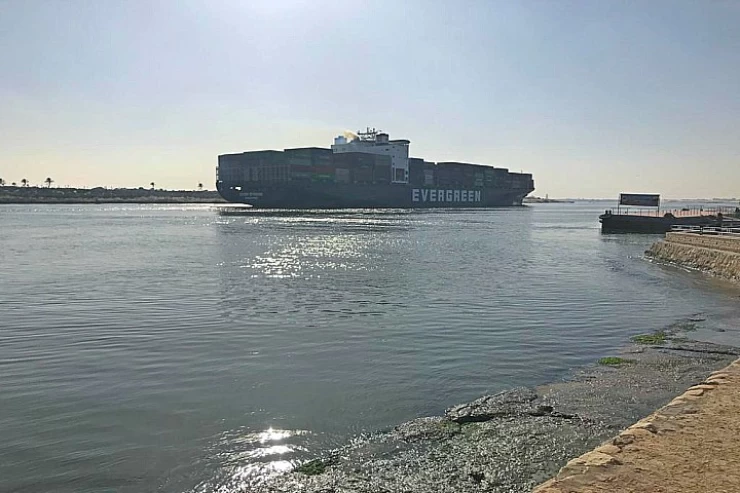
Great Bitter Lake | Ismailia
Great Bitter Lake | Ismailia
Located between the northern and southern part of the Suez Canal in the Ismailiya Governorate in Egypt, the Bitter Lakes are lakes filled with salt water, which consists of two lakes, namely: The Great Bitter Lake and the Lesser Bitter Lake, with an area of about 250 km2, receiving water from the Red Sea and the Mediterranean Sea.
This water replaces the water lost through evaporation, and these lakes form a barrier to the canal, which minimizes the impact of the tidal currents reaching it, knowing that it passes through Lake Crocodile and Lake Manzala.
The Bitter Lakes are bodies of water that extend for 50 km from Al-Dafraswar in the north to Sulphur Island in the south, where the area of the small bitter lakes is equivalent to 9,525 acres, knowing that the Egyptian feddan is equal to 4200.83 m2, while the area of the Great Lakes is about 46,190 acres, and it must be noted that it is one of the main pillars of development and tourism activity in Ismaili Governorate.
In addition to constituting a good sector for fisheries, fishing, and fish farming, it has been exposed to many issues, such as pollution resulting from the drains into which the oil pollution accidents of ships crossing the canal, which prompted the Egyptian government to take many measures to minimize pollution, such as: Forcing all facilities located on the bitter lakes to set up special stations to treat sewage before it enters the public sewage network, in addition to completing the construction of sewage lift stations.
It is known as the migration of some animal and plant marine organisms from the Red Sea to the Mediterranean Sea and vice versa through the Suez Canal, due to its digging in 1869 AD, and among the most famous types of these fish, barbone, and sigan, and it must be noted that most of them reached Gibraltar, especially mollusks, crustaceans, and fish, knowing that the bitter lakes formed an obstacle to the transportation of these fish in the Suez Canal.
Lake Crocodile is a part of the lakes included in the Suez Canal and it can be rated a natural setting with significance in tourism production on account of the many fish annually produced. This lake also faces the coast of Al-Forsan Island, where one of the privately held gardens of the Egyptian House of President is situated. However, it should be mentioned that this area has suffered pollution due to the movement associated with the operation of the Suez Canal and the discharge of domestic and agricultural effluents into the lake and therefore, the authorities of Egypt attempted to address this predicament by enhancing the quality of the water in the lake.















